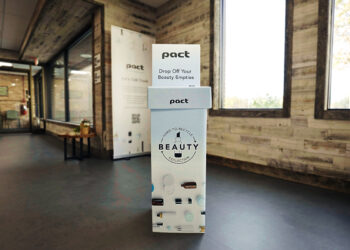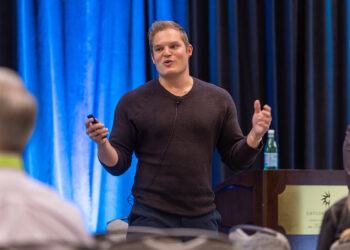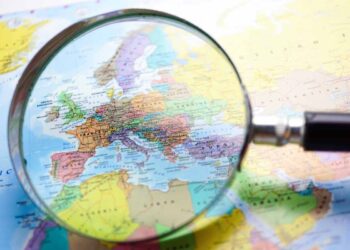Ahead of the second session of the Intergovernmental Negotiating Committee on Plastic Pollution in Paris, organizations are laying out their wish lists and forming partnerships.
The second round of negotiations – dubbed INC-2 – will run May 29 through June 2 in Paris. The first round was held in 2022 in Uruguay, following a February 2022 United Nations resolution to develop an international legally binding instrument on plastic pollution by the end of 2024.
There will be five total sessions.
Changes to participation
Recently, the U.N. has been criticized for its decision to limit observer participation at the second session of negotiations.
Under the new rules, only one representative per organization would be allowed in the room, though each organization is permitted to register five people per delegation. Nearly 2,700 member state delegates and observers are registered for the in-person-only negotiations.
Jane Patton, plastics and petrochemicals campaign manager at the Center for International Environmental Law, said in a press release that “observer participation is not optional, to be deprioritized if the room isn’t big enough.”
“The intention to restrict participation to one representative per organization flies in the face of the mandate and established best practice by severely curtailing observers’ ability to engage in the process,” Patton said. “The physical capacity limits of the UNESCO building – the location chosen for the upcoming plastics treaty negotiations – were a known issue, and going over those limits for registered participants was foreseeable and preventable.”
Patton asked the U.N. to create overflow rooms with streaming access and create alternate arrangements for “the hundreds of observers who are effectively shut out of the negotiation process.”
“Advancing a strong and effective treaty demands that civil society organizations, scientific experts, rightsholders, workers and people living along the frontlines of the plastics crisis can meaningfully participate throughout the process,” Patton added.
Group calls for product bans
A number of other stakeholders have also been taking action in the runup to INC-2.
The World Wildlife Fund is calling for a ban on the “most high-risk and unnecessary” single-use plastic items, such as vaping devices, cutlery and cosmetic microplastics.
Marco Lambertini, WWF Special Envoy, said in a press release that while many countries are already implementing measures, “we know this isn’t enough.”
“We need coordinated approaches led by globally agreed rules that can make a difference at scale and put every country and company on the same level playing field,” he said.
Ocean Conservancy, neanwhile, wants to see strong provisions on ghost gear in the agreement. (Ghost gear is abandoned, lost or discarded fishing gear.)
Nicholas Mallos, vice president of conservation for ocean plastics at Ocean Conservancy, said in a press release that ghost gear is the “elephant seal in the room” and “we cannot effectively address ocean plastic pollution without acknowledging the prevalence and impact of ghost gear.”
The Plastic Industry Association said in a statement that it “supports international efforts to promote the elimination of plastic waste from the environment” and added that plastic is “essential to the health, safety, protection and well-being of humanity.”
The association is hoping to see an “official recognition of the essential nature of plastic,” as well as “ambitious yet reasonable” goal-setting that is not one-size-fits-all. It also hopes the agreement lacks caps, bans or material restrictions.
The American Chemical Council (ACC) noted on its recently launched Global Partners for Plastics Circularity website that it’s “championing a global agreement to achieve the goal of eliminating additional plastic pollution while retaining the societal benefits of plastics.” The Global Partners are companies that make, use and recycle plastics, led by the International Council of Chemical Associations.
The group is seeking global policy harmonization, regular progress reports, public-private partnerships, an increase in recycling and collection capacity and mandated participation in a pellet containment program.
Recent reports
The U.N. also recently released a report to aid negotiators. The report laid out scenarios for an 80% reduction of plastics that leak into the environment.
However, the Global Alliance for Incinerator Alternatives (GAIA) said it was concerned because the report promoted “burning plastic waste in cement kilns as a key strategy in the design and implementation of the Global Plastics Treaty.”
Neil Tangri, science and policy director at GAIA, said in a press release that “burning plastic waste in cement kilns is a ‘get out of jail free card’ for the plastic industry to keep ramping up plastic production by claiming that the plastic problem can be simply burned away.”
“Not only does this pose a grave climate and public health threat, it also undermines the primary goal of the global plastic treaty – putting a cap on plastic production,” he said.
New alliance
In another development, more than 60 environmental and pollution solution organizations have formed the Innovation Alliance for a Global Plastics Treaty.
Led by rePurpose Global and The Ocean Cleanup, the alliance intends to recognize “that the ongoing United Nations-led negotiations process represents humanity’s single most important opportunity to alter the trajectory of the global plastic pollution crisis,” according to a press release from the group.
“The Innovation Alliance aims to elevate crucial perspectives from those closest to tackling plastic waste worldwide, and in doing so, help ensure that the Global Plastics Treaty lives up to its promised potential,” the press release stated.
Svanika Balasubramanian, co-founder and CEO of rePurpose, said in the press release that the first round of treaty negotiations “saw plenty of demands being lobbed in every direction, but not a whole lot of solutions.”
The alliance is looking to bring voices that have “actual solutions against plastic waste” to the forefront, Balasubramanian added.
Boyan Slat, founder and CEO of The Ocean Cleanup, added that “a plastics treaty negotiation that does not actively involve innovators will risk producing a piece of text that sounds promising on paper but doesn’t empower those who are actually doing the work on the ground.”
Other founding members include AMP Robotics, Ocean Bottle and Sustainable Ocean Alliance.
The alliance is calling for a “pragmatic and inclusive” agreement that is based on data, that includes existing innovations and that simplifies government financing to improve access to flexible financing for solution-oriented organizations.



























